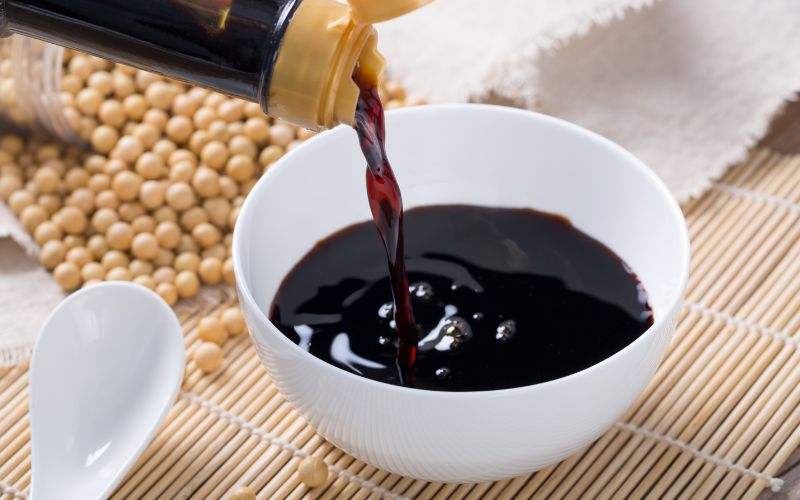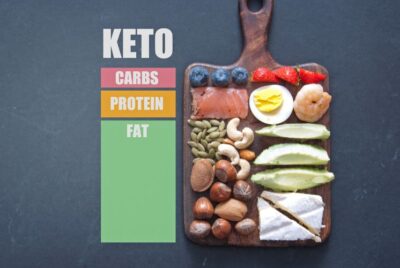Is Soy Sauce Keto? Unveiling the Truth
As a dedicated follower of the ketogenic lifestyle, I’m always on the lookout for ways to enjoy my favorite flavors without breaking my carb budget. Soy sauce, a staple in many kitchens for its rich, umami flavor, often comes up in conversations about diet restrictions. Is soy sauce keto-friendly? In this article, I will dive deep into the nature of soy sauce, its carb content, and how it fits into a ketogenic diet.
Understanding Soy Sauce: Ingredients and Nutritional Profile
Soy sauce is a traditional Asian condiment made from fermented soybeans, wheat, salt, and a fermenting mold called koji. This combination gives soy sauce its signature umami flavor but also introduces small amounts of carbohydrates – mainly from the soybeans and wheat. It’s known for its salty, rich, slightly sweet flavor profile that enhances the taste of various dishes. Soy sauce is integral to many Asian cuisines, including Chinese, Japanese, Korean, and Thai.
Nutritional Snapshot (per 1 tablespoon of regular soy sauce):
- Calories: 8–10
- Total Carbohydrates: 1g
- Sugars: 0g
- Protein: <1g
- Fat: 0g
- Sodium: ~900–1,000 mg
While 1 gram of net carbs may not seem like much, the sodium content is high – so moderation is key, especially if you’re watching your blood pressure or sodium intake.
Is Soy Sauce Keto-Friendly?
The ketogenic diet focuses on minimizing carbohydrate intake to a level that induces the body to burn fat for fuel in a state known as ketosis. Typically, this means consuming no more than 20-50 grams of carbs per day.
Given that soy sauce contains approximately 1-2 grams of carbs per tablespoon, it can be considered keto-friendly if used in moderation. However, the key here is moderation. Overuse in a meal could potentially tip your carb counts just enough to matter, especially if you are strict about maintaining ketosis.
Keto-Friendly Alternatives to Traditional Soy Sauce
Soy sauce is a popular condiment ingredient packed with flavor, but if you’re following a keto diet, traditional soy sauce can sometimes be a concern due to its sodium content and potential additives. Luckily, there are several keto-friendly alternatives that give you that salty, umami kick without the extra carbs or unwanted ingredients.
Here are some great options to consider:
- Tamari Sauce
A gluten-free alternative to soy sauce, tamari has a rich flavor and is usually lower in carbs. Just be sure to check the label for added sugars. - Coconut Aminos
Made from fermented coconut sap, coconut aminos are naturally lower in sodium and carbs than regular soy sauce. They have a slightly sweeter, milder taste but work perfectly in stir-fries, marinades, and dipping sauces. - Liquid Aminos
These are made from soybeans but are often gluten-free and have no added sugars. Liquid aminos offer a similar taste profile and are keto-friendly in moderation.
Considerations for Including Soy Sauce in a Keto Diet
1. Watch the Serving Size: Due to its high sodium content and moderate carb levels, it’s crucial to monitor how much soy sauce you’re using. Stick to small amounts—usually, a tablespoon or two is enough to flavor an entire dish.
2. Choose Naturally Brewed Soy Sauce: Opt for naturally brewed soy sauce to avoid added sugars and preservatives that are not keto-friendly. Read labels carefully to ensure the product does not contain any unnecessary additives.
3. Alternatives to Regular Soy Sauce: If the carb content still concerns you, consider alternatives like tamari (if gluten is a concern) or coconut aminos, which offer a similar umami flavor but with fewer carbs and less sodium.
How to Use Soy Sauce on a Keto Diet
Soy sauce can be incorporated into a ketogenic diet in various delicious ways:
- Marinades: Use it to marinate meats like beef, chicken, or pork to add depth of flavor without adding significant carbs.
- Stir-Fries: A dash of soy sauce in stir-fry dishes can enhance the natural flavors of vegetables and proteins without contributing many carbs.
- Soups and Broths: Add soy sauce to soups and broths for an extra layer of flavor complexity.
- Sauce Mixes: Combine soy sauce with other keto-friendly ingredients like ginger, garlic, and sesame oil to create tasty dipping sauces and dressings.
Conclusion
In conclusion, soy sauce can indeed be part of a ketogenic diet when used judiciously. Its low carb content per serving makes it a viable option for adding flavor without disrupting ketosis. As with all aspects of a healthy diet, the key is moderation and mindful consumption. Whether you’re seasoning a dish or whipping up a marinade, soy sauce is a versatile condiment that can fit into your keto lifestyle while keeping meals delicious and interesting.
FAQ: Is Soy Sauce Keto-Friendly?
1. How many carbs are in a tablespoon of soy sauce? A typical tablespoon of soy sauce contains around 1 gram of total carbohydrates.
2. Is the sodium content in soy sauce a concern on keto? Soy sauce is very high in sodium—about 900 to 1,000 mg per tablespoon. If you’re watching your sodium intake or blood pressure, it’s best to use soy sauce sparingly.
3. What should I look for when buying soy sauce for keto? Choose naturally brewed soy sauce without added sugars or preservatives. Always read the label to avoid hidden carbs or additives.
4. Can I use soy sauce daily on keto? You can, but it’s best to keep portions small to avoid too much sodium and carbs. Usually, a tablespoon or two per meal is enough to add flavor without impacting ketosis.
5. Does soy sauce contain gluten? Traditional soy sauce contains wheat, so it’s not gluten-free. If gluten is a concern, opt for tamari sauce instead.




